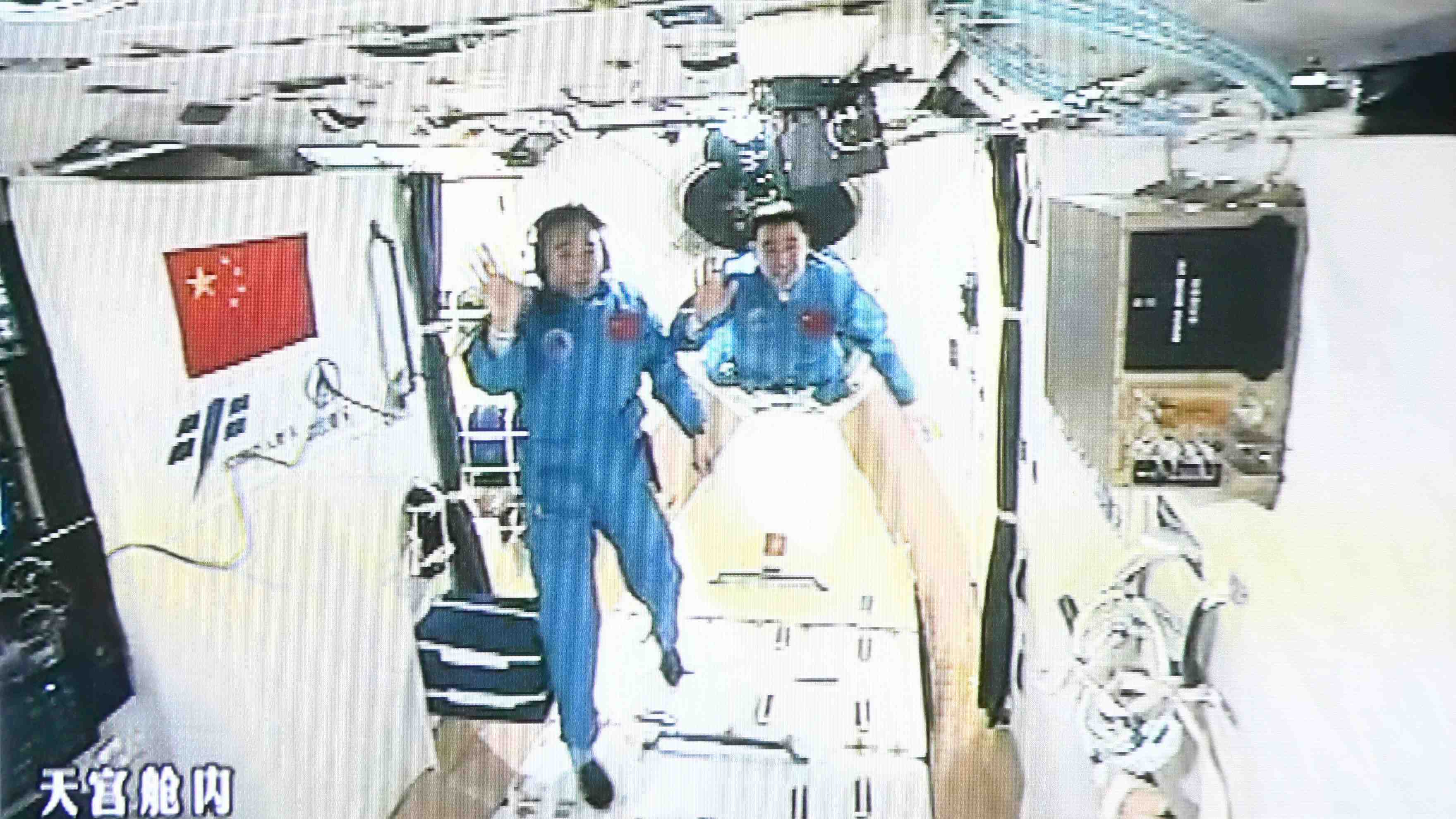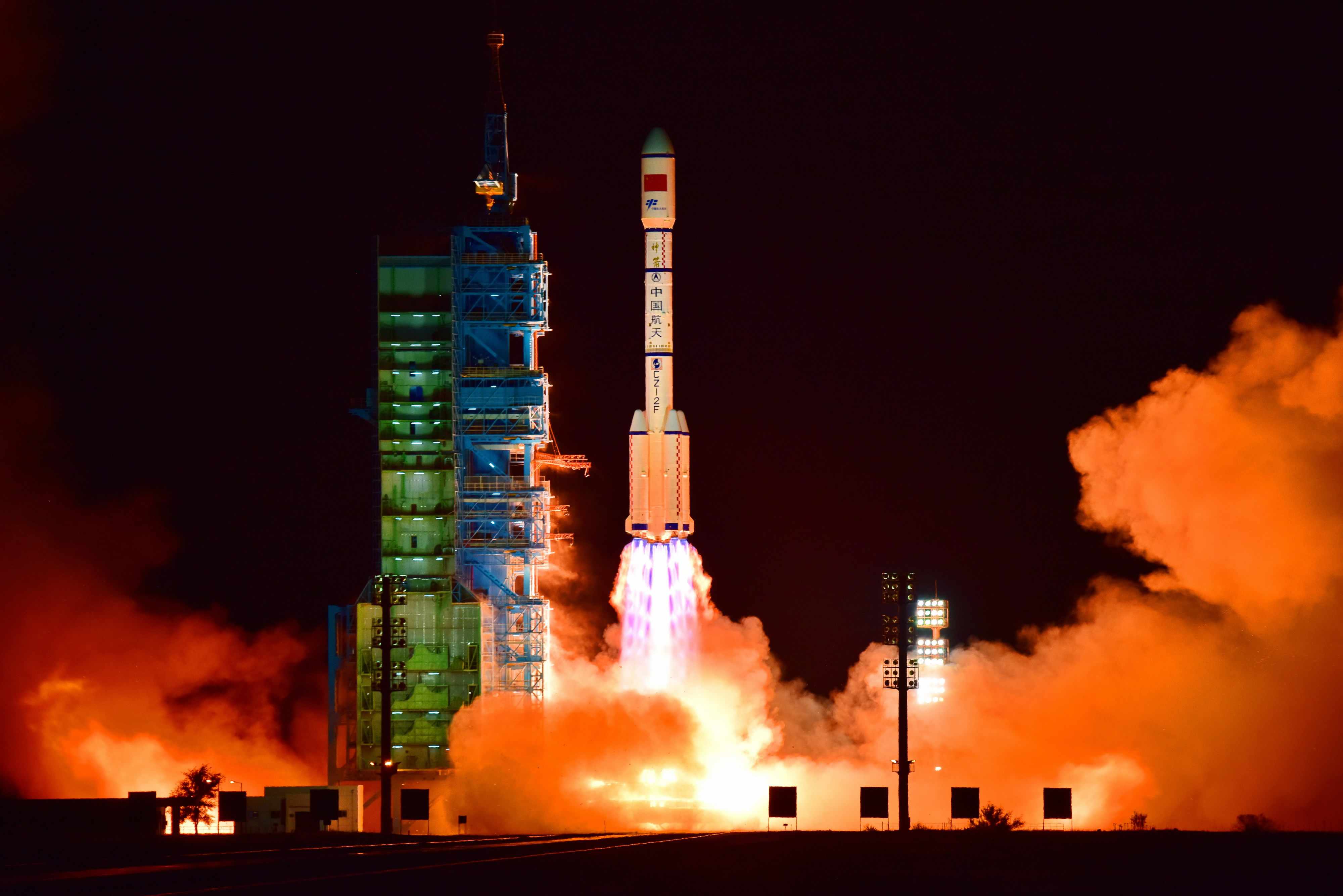
Tech & Sci
22:36, 18-Apr-2017
China to outpace US, Russia in space within 20 years, experts say

China's space programme has come far in just a few decades and could soon overtake the US and Russia, international experts are predicting as China prepares to launch another key mission into orbit.
“The Chinese space programme is still behind the American space programme and the Russian space programme, but it’s gaining ground very rapidly," Australian space analyst Morris Jones told CGTN ahead of the launch of the Tianzhou-1 cargo spacecraft later this week.
"If the pace continues, I think the Chinese space programme could overtake these space programmes over the next 20 years," he added.

A Long March 2F rocket, carrying the Tiangong-2 space lab, blasts off from Jiuquan Satellite Launch Center in China's Gansu Province on September 15, 2016. /CFP Photo
A Long March 2F rocket, carrying the Tiangong-2 space lab, blasts off from Jiuquan Satellite Launch Center in China's Gansu Province on September 15, 2016. /CFP Photo
China has been "essentially ticking off the boxes" of what it needs to do to establish a space station by 2022 as planned - by putting astronauts in space, keeping them there for extended periods of time, mastering docking techniques, and now launching a cargo spacecraft to practice on-orbit refueling, noted Jones.
Once the International Space Station (ISS) is decommissioned, probably no later than 2028, "it’s very likely... that the only space station will be China’s".
Determination
China first sent a man into space in 2003, 42 years after the Soviet Union. But it has since followed up with five more manned missions, put two space labs in orbit and landed a probe on the moon, and it plans to launch a new lunar probe this year, a Mars rover by 2020 and send astronauts to the moon within 20 years.
Jeff Kluger, science editor at TIME magazine and co-author of "Apollo 13" about the ill-fated NASA mission, put China's quick progress down to its political resolve.
"While China started late, once they began they caught up very fast... China's current space programme has a little bit of what the American space programme had in the 1960s, which is a focused unshakeable commitment to reaching a certain goal and putting the power of government behind it."
"I think it has a great deal to do with what has made China a global power in the last 20 or 30 years... making a decision and following through."

Working together
China last year signed a deal with the UN Office of Outer Space Affairs (UNOOSA) to allow UN member states, especially developing countries, in future to conduct experiments and even send astronauts and engineers aboard the Chinese space station.
Beijing has also worked closely with the European Space Agency on satellites and science missions.
But US fears that Beijing would get access to sensitive technology have seen China shut out of the International Space Station, a move Kluger - a long-time admirer of the Chinese space programme - called "nonsensical."
Despite being bitter enemies during the Cold War and even with tensions today, the US and Russia have worked closely together on the ISS and "the international community could benefit from having that kind of peaceful collaboration with China," said Kluger.
"Astronauts say this all the time, that when you're orbiting the earth, and when you're at the moon and looking back at earth, you don't see borders," he added.

International cooperation will also become ever more necessary in the future.
"Space is very big, very complex and very expensive, and if you want to do a very large project like a large space station or a mission to Mars or other complex ventures, it’s getting to the stage where most single nations can’t do it alone even if you’re as strong as America or Russia or China," said Morris Jones.
"So space flight will be increasingly international in the future... it’s practically the only way to support these very large projects.”
Opening to the public
The Wenchang Satellite Launch Center in Hainan Province has made Chinese launches - until now held in remote locations - more accessible to the public. But allowing in international press could work wonders for the country's image, Kluger urged.
"I think China needs a little more of that openness because the world will come to embrace and celebrate China and China's space programme in the way they did the US space program in the 1970s and 60s."

"All countries guard their technology but China is doing a very good thing and there is a lot to be gained by letting the world watch them do that."
Once the ISS closes down, "the sky will be left to China for a near-Earth orbiting space laboratory," Kluger said, noting this could become the next big international project if Beijing decides to host astronauts from around the world.
"If that's what China chooses to do, I suspect China will succeed in doing it because China has been successful so far in everything else it's tried in space," he predicted.

SITEMAP
Copyright © 2018 CGTN. Beijing ICP prepared NO.16065310-3
Copyright © 2018 CGTN. Beijing ICP prepared NO.16065310-3